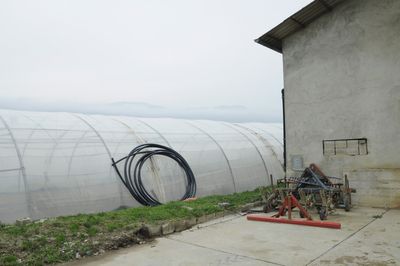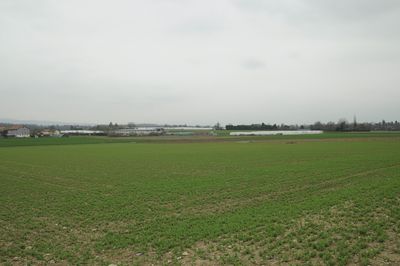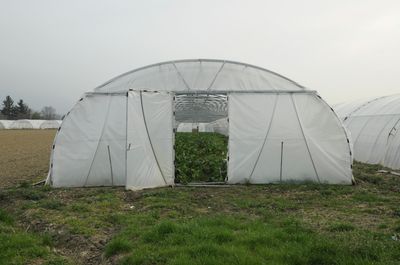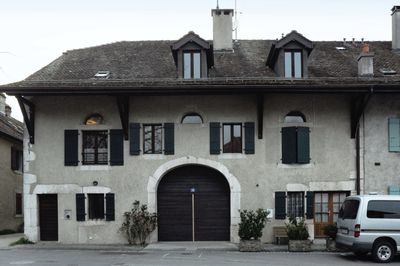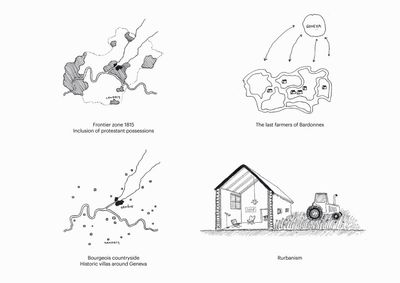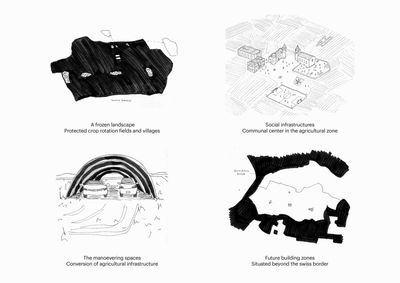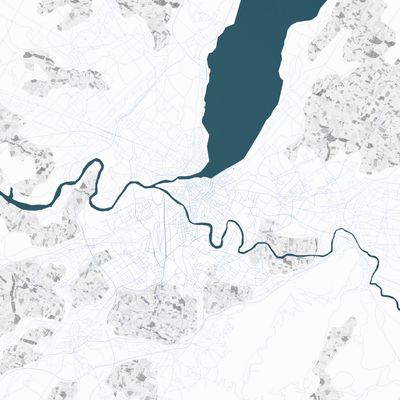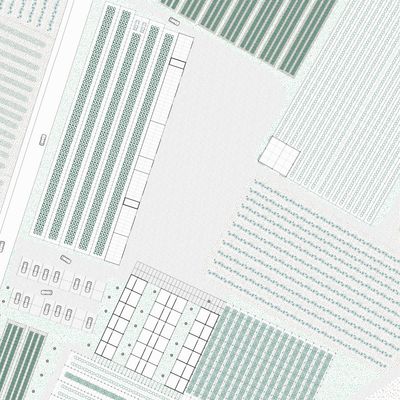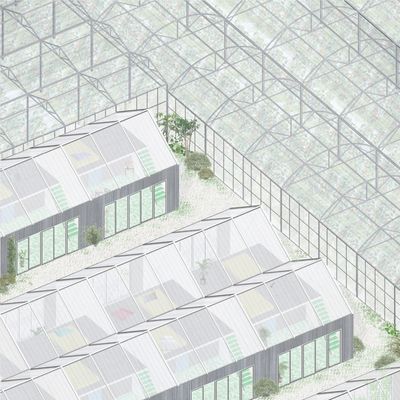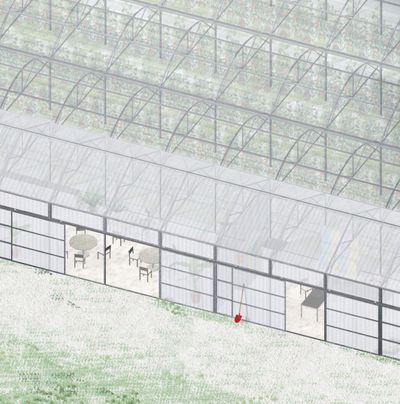Commune BardonnexThe Frozen Landscape of the Campagne GenevoiseSarah Stieger and Oliver Burch
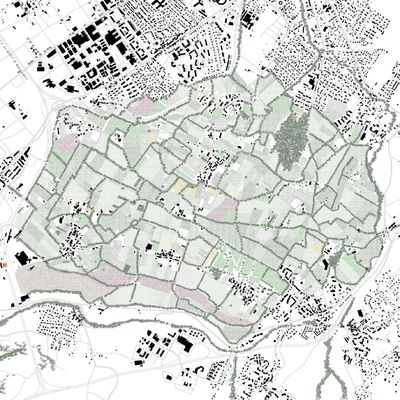
In the very south of the Canton of Geneva, the agricultural commune of Bardonnex and its three hamlets form the gate to the French commuter towns around St Julien. It is located within Geneva’s agricultural belt of Surface d’Assolement, 8400 hectares of protected crop-rotation area consisting of open land, intercalary artificial grassland, and arable grassland. The conception of this zone was given by a federal law in 1992 requiring each canton to reserve a certain percentage of land for self-sufficiency during times of crisis. More than safeguarding Geneva’s food supplies, this belt of land has become crucial for the city’s exclusivity and high quality of life: few other cities today have such a small, compact footprint and a pristine cultural landscape nearby.
In spite of preserving the landscape and resisting urban sprawl, this zone of Surface d’Assolement has become more of a burden for the commune of Bardonnex, which has a substantial reserve of communally owned land, but most of it within the protected zone. While the population is growing, further building development is gridlocked and the municipality struggles to provide enough services to its inhabitants for the simple lack of space. The current extension of the primary school, for example, has been set up without formal permission on a communal orchard only to be given temporary permit post factum, without plans for a permanent relocation.
The lack of space has caused the people to share their land inventively: The fields are cultivated following individual agreements among the farmers and not necessarily along property lines. The commune designates the use of its land seasonally according to special needs and local festivities. Civic services like the fire department and police are also shared with the neighbouring commune of Plan Les Ouates.
Being one of the poorer villages without industries to generate high tax incomes, Bardonnex does not reach the critical limit to receive re-zoning permits from the Canton and to develop according to its needs. This raises the question of the power of the commune, which has lost all competence in planning and has no means to facilitate growth.
